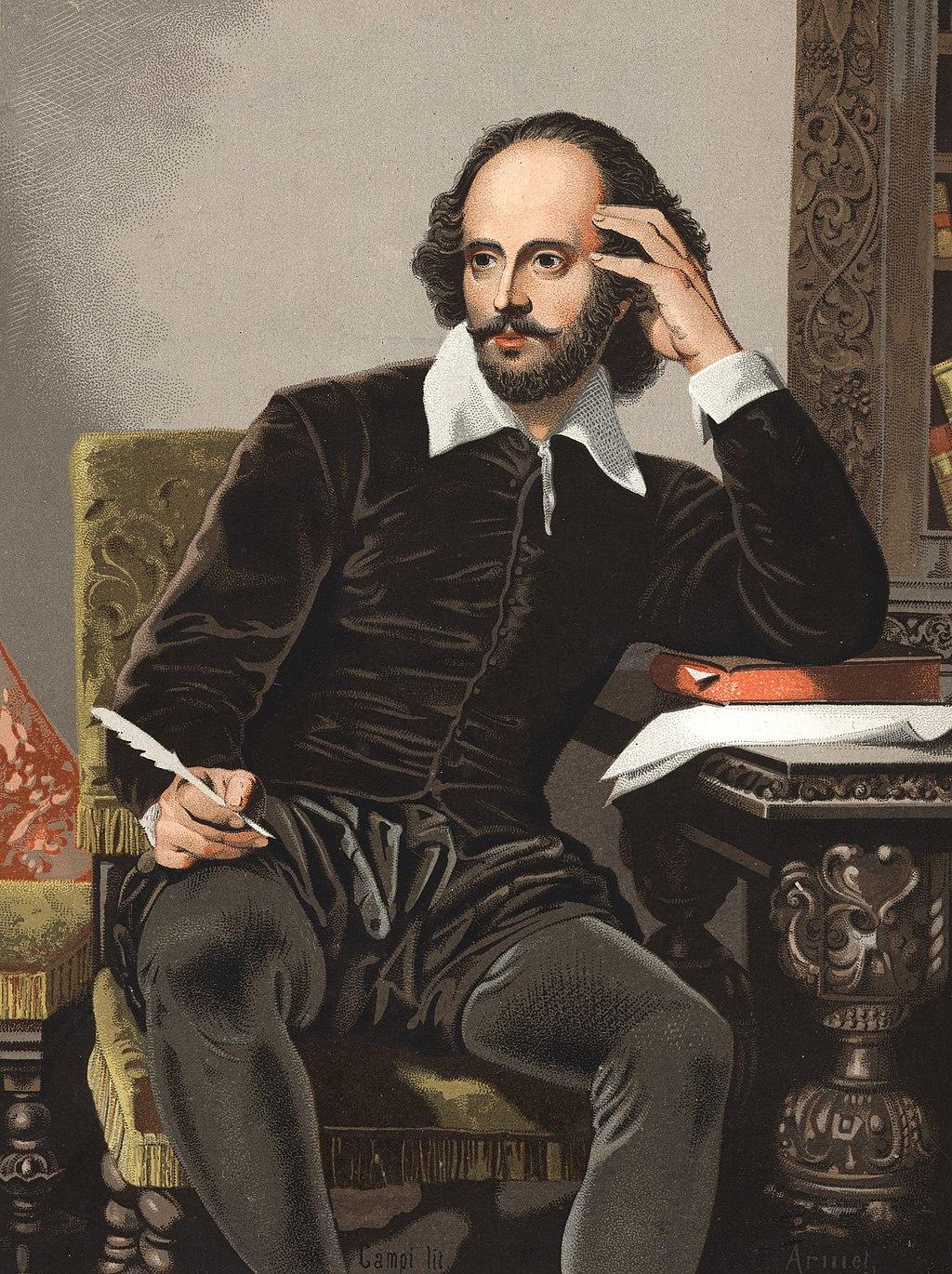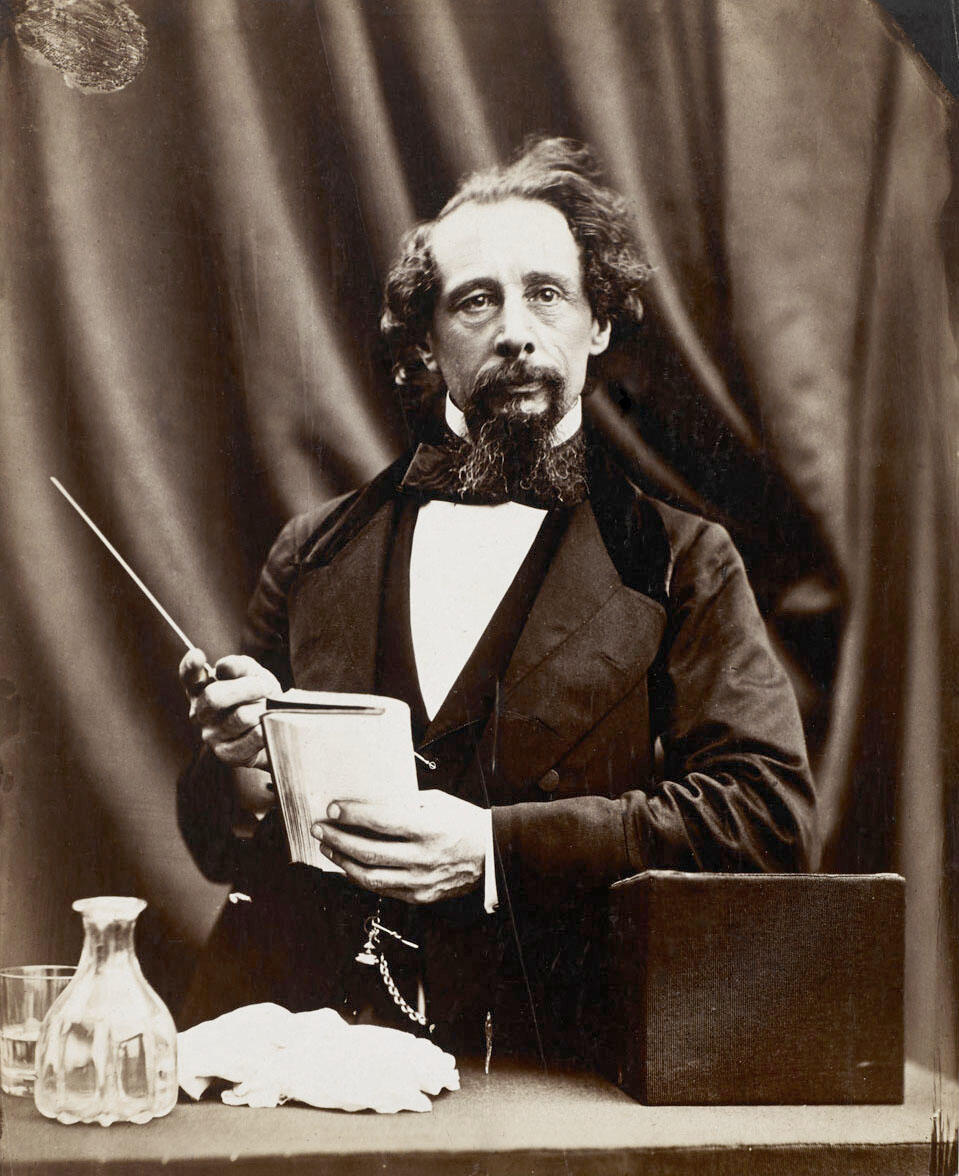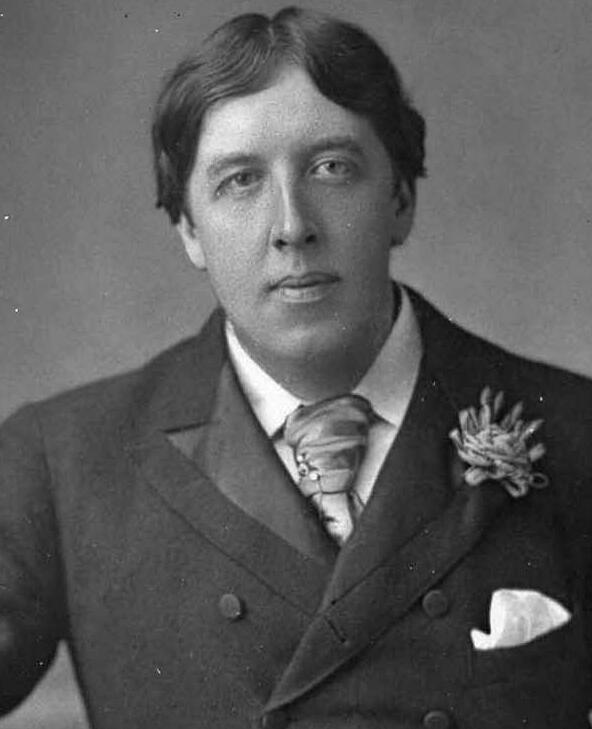Some authors leave a great influence on the literary scene and become household names within their respective genres for generations to follow. Numerous authors have become torch-bearers for distinct literary varieties, often setting the benchmark for future writers to follow in their footsteps. Additionally, if you're taking a literature class, you're bound to come across at least one of their works. Let's have a look at some of the most incredible literary figures to grace literature and prose.
| Author | Nationality | Lifespan | Famous Work(s) |
|---|---|---|---|
| William Shakespeare | English | 1564–1616 | Hamlet, Romeo and Juliet, Macbeth, Othello, Troilus and Cressida |
| Johann Wolfgang von Goethe | German | 1749–1832 | Faust, The Sorrows of Young Werther |
| John Milton | English | 1608–1674 | Paradise Lost |
| Mark Twain (Samuel Clemens) | American | 1835–1910 | The Adventures of Tom Sawyer, The Adventures of Huckleberry Finn |
| Samuel Johnson | English | 1709–1784 | A Dictionary of the English Language, The Rambler (essays) |
| George Orwell (Eric Arthur Blair) | English | 1903–1950 | 1984, Animal Farm |
| Ernest Hemingway | American | 1899–1961 | The Old Man and the Sea, A Farewell to Arms, For Whom the Bell Tolls |
| Virginia Woolf | English | 1882–1941 | Mrs Dalloway, To the Lighthouse, Orlando |
| J.K. Rowling | English | 1965– | Harry Potter series |
| Ayn Rand | Russian-American | 1905–1982 | Atlas Shrugged, The Fountainhead |
| Charles Dickens | English | 1812–1870 | Oliver Twist, David Copperfield, Great Expectations, A Tale of Two Cities |
| Dante Alighieri | Italian | 1265–1321 | The Divine Comedy (Inferno, Purgatorio, Paradiso) |
| Oscar Wilde | Irish | 1854–1900 | The Picture of Dorian Gray, The Importance of Being Earnest, An Ideal Husband |
| Fyodor Dostoevsky | Russian | 1821–1881 | Crime and Punishment, The Brothers Karamazov, The Idiot, Notes from Underground |
| Miguel de Cervantes | Spanish | 1547–1616 | Don Quixote |
| William Blake | English | 1757–1827 | Songs of Innocence and of Experience, The Marriage of Heaven and Hell, Jerusalem |

Famous People in Literature: William Shakespeare, English Author (1564-1616)
One cannot talk of literary icons of English literature without mentioning William Shakespeare.

No high-school literature class is complete without reading one of his works. His influence permeates our society, and it's common to hear references to his plays often. It's not just literature where he reigns supreme. Shakespeare is known for his comedies, tragedies and sonnets alike. Plays like Troilus and Cressida take inspiration from Hellenic sources, while others are more recent and based on Renaissance-era Venice and Elizabethan England. Shakespeare is also noted for his rhythm and use of the iambic pentameter, but his most significant influence on English was his expression.
He is famous for having coined new words and phrases that we still use, such as "wear my heart upon my sleeve" and "Be all and end-all."
Johann Wolfgang von Goethe - German Author (1749-1832)
Johann Wolfgang von Goethe was a seminal German writer, poet, playwright, and statesman whose works have profoundly impacted Western literature. Born in Frankfurt in 1749, Goethe produced a vast body of work over his six-decade-long career, including novels, dramas, poems, and scientific treatises. His magnum opus, "Faust," is considered one of the greatest works in German literature, delving into themes of ambition, desire and redemption.
Goethe's works reflect the intellectual and cultural movements of his time, particularly the Sturm und Drang (Storm and Stress) movement, which emphasized individualism and emotional expression. His early novel, "The Sorrows of Young Werther," became a cultural phenomenon and significantly influenced the Romantic movement. Here is a fun biography on YouTube!
Here is where you can find out about English classes near me!
Famous Personalities in English Literature: John Milton, English Poet (1608-1674)
John Milton, an eminent English poet and intellectual, is best known for his epic poem "Paradise Lost," which stands as a monumental achievement in English literature.

Born in London in 1608, Milton's education at Cambridge and his extensive self-study imbued him with a profound knowledge of classical and contemporary works, influencing his literary style and thematic concerns.
His writings span a range of genres, including poetry, prose, and political pamphlets, reflecting his deep engagement with the religious, political and philosophical issues of his time.
Famous People in English Literature: Mark Twain, American Writer (1835-1910)
Mark Twain, born Samuel Clemens in 1835, is a celebrated American writer known for his sharp wit and keen social observations.

His experiences along the Mississippi River deeply influenced his storytelling, lending authenticity to his narratives. Twain's most famous works include "The Adventures of Tom Sawyer" and "The Adventures of Huckleberry Finn." Readers in the United States can also connect with an english tutor in Atlanta to study regional dialects and historical context.
The latter is particularly noted for its exploration of race and identity in the pre-Civil War South, blending humor with serious social commentary, ensuring Twain's enduring relevance in American literature.
Samuel Johnson - English Author (1709 - 1784)
Samuel Johnson was a wise English writer and lexicographer whose contributions to literature and language have left a lasting mark.

His most notable achievement, "A Dictionary of the English Language" (1755), set the standard for English dictionaries and highlighted his exceptional lexicographical skill. Beyond his dictionary, Johnson's essays, poems, and literary critiques exhibit his profound intellect and insight into human nature. His work, coupled with his conversational prowess and wit, cemented his status as one of the towering figures in English literature.
George Orwell - English Writer (1903-1950)
Aside from his writing style creating the word 'Orwellian,' his work is relevant in the modern socio-political environment, where countries veer towards authoritarianism. Some literary critics would even go so far as to say no other piece of literature is more relevant to politics than Orwell's masterpiece '1984.'

It's impossible to talk about authoritarianism, mass surveillance, state propaganda, and falsification of truth without referencing Orwell's work.
'Doublethink,' 'Thoughtcrime,' 'Newspeak,' 'Big Brother' are terms inspired by his work and have entered modern parlance as signs of a dystopian future and state-sponsored totalitarianism. While some thought 1984 was based on the Soviet Union, it still finds relevance today and for times to come as a warning against authoritarian narratives.
Another one of his famous works - Animal Farm - talks of how revolutions can be hijacked and used by specific groups to seize power. Check out some excellent school English tutors in the US.
Ernest Hemingway - American Author (1988-1961)
Perhaps not as politically relevant as Orwell, Ernest Hemingway remains one of the most famous writers of the twentieth century, and his books continue to sell year after year.

What is remarkable about his work? In today's world, where there is a focus on literary allusions, Hemingway's work stands out through his emphasis on raw machismo and free from intellectual subtleties. He had a personal inkling for war, masculinity, and virility, drawing influence from his service in World War 1 and his work represented precisely that. Ernest Hemingway's writing reflects raw, unbridled masculinity, with a simple yet tersely descriptive style. And that is where his niche lies. His work still influences many genres, imbibing them with their stoic yet tense 'in the moment' feeling.
Hemingway's work has the quality of transporting the viewer to the scene in question. He describes each setting as if the reader was there, letting them feel the tension, joy, opinion, and sense of urgency surrounding the scene.
Virginia Woolf - English Writer (1882-1941)
Who's afraid of Virginia Woolf? Though the play is not related to the author Virginia Woolf, it still is a pretty good testament to her relevance in the literary world. Being a part of the avant-garde Bloomsbury group, she routinely pushed boundaries to what was considered morally palatable in turn-of-the-century Victorian times and its sensibilities. Many critics make the mistake of pigeonholing her as a 'feminist' writer. While she certainly was a feminist icon, routinely incorporating first-wave movement themes in her writing, she was much more than just a 'women's writer.' Here's an informative video on YouTube!
She mastered the stream-of-consciousness writing style, often leading to an inner-monologue within her literary pieces, which many readers appreciate. While the generation before her focused on external details in their writings, Woolf was probably the pioneer of giving voice to introspection, though without the jargon, needless psycho-analysis, or any hint of the subconscious. She formulated a new method of expression that emphasized what it is to know ourselves from within.

J.K. Rowling, English Author: Famous People in Literature (1965-)
Like her or not, Rowling has a writing style that has led her to become one of our generation's most recognizable authors. Her acclaimed Harry Potter series has been globally recognized for its imaginative world-building, impeccable prose, and the multitude of themes juxtaposed within the revered seven novels.

Many literary snobs would be quick to scoff at Harry Potter being spoken of in the same conversation as classics such as Animal Farm and the Ulysses. However, that won't change the fact that this series is probably the most popular fictitious publication of our time. It has left its mark on popular culture, spawning movies, video games, theater plays, and a religiously dedicated fandom.
J.K. Rowling stands out as a writer for her sheer ingenuity in having carved out an entirely alternate universe, complete with fictional creatures, such as goblins, centaurs, and soul-sucking dementors.
What's remarkable is that most of her characters are inspired by a literary tradition, such as the centaurs and Basilisk taking inspiration from Greek mythology and Voldemort's snake Nagini taking its name from Indian folklore. While Harry Potter may not feature in a literature class curriculum, J.K. Rowling's Potterverse has become an irrevocable part of pop-culture. It holds its own as a masterpiece in modern literature. Find an amazing English class online today when you search for a tutor on Superprof!
Ayn Rand - Russian-American Author (1905-1982)
This Russian immigrant's move to America made such an impact with her work and ideology that she is still relevant in US politics. Her magnum opus, Atlas Shrugged, is still so famous after all these years. While many critics label her views as sheer, unbridled capitalism, not caring who gets crushed in the search for a capital gain, her philosophy still drives many top politicians, capitalists and business people.

Her work Atlas Shrugged is a narrative for a dystopia that draws on libertarian fears of suffocating government control. It stresses individual needs over collective, which some would argue, gives way to an 'every man for himself' frenzy of selfishness and greed. Yet her work remains relevant as ever. Her views inspired the age of capitalism, freedom, entrepreneurship and 'laissez-faire' market economies at their best. At their worst, some would argue that they veer towards greed, get-rich schemes, and indifference to the poor, ignored, and underprivileged.
In a way, she can be viewed as touting Charles Darwin's theory of 'survival of the fittest' in the economic and social sphere. Moreover, her philosophy of objectivism is relevant to this day in America; it taps into the values of libertarianism and individualism. That's one of the benefits of literature: readers can find allegories for social, interpersonal, and political trends in works of fiction, whether it's unbridled capitalism in Rand's work or the perils of dystopian, totalitarian regimes in Orwell's pieces.
Charles Dickens – English Author (1812–1870)
Charles Dickens was one of the central figures of Victorian literature, admired for his ability to tell gripping stories while exposing social injustice. Born in Portsmouth in 1812, Dickens faced hardship early in life. His father’s imprisonment for debt forced young Charles to work in a factory, an experience that gave him a lifelong sympathy for the poor and disadvantaged.

His novels often appeared in serial installments, making them affordable and accessible to a wide readership. This method allowed him to build suspense and keep readers eagerly awaiting the next chapter. Dickens’s gift lay in creating vivid characters who embodied the struggles and hypocrisies of 19th-century England, whether it was the miserly Ebenezer Scrooge in A Christmas Carol or the destitute orphan in Oliver Twist. His famous works include Oliver Twist, David Copperfield, Great Expectations, A Tale of Two Cities and Bleak House.
At the same time, he balanced his social criticism with humor, melodrama, and unforgettable dialogue. Readers were drawn in by the drama but left with questions about poverty, inequality and morality. His works influenced debates on education, child labor, and public health, giving his stories a lasting weight beyond entertainment.
Dante Alighieri – Italian Poet (1265–1321)
Dante Alighieri transformed medieval literature and gave Italy a national voice through poetry. Born in Florence in 1265, Dante lived during a period of political turmoil. His involvement in city politics eventually led to his exile, a painful experience that shaped much of his writing. His masterpiece, The Divine Comedy, is a three-part journey through hell, purgatory and paradise. The poem is both a spiritual vision and a reflection of his own life, blending theology, philosophy and human experience. Unlike many writers of his age, Dante chose to write in Italian rather than Latin, giving ordinary people access to serious literary work. This choice helped establish Italian as a literary language. If you are studying literature in the United States, you might find an english tutor in Billings to help explore comparative medieval and modern texts. Here is a short biography on YouTube!
The Divine Comedy is remarkable for its vivid imagery, symbolic structure, and use of “terza rima,” a chained rhyme scheme that influenced generations of poets. At the same time, it is deeply personal: Dante populates his afterlife with historical figures, friends, rivals, and mentors, weaving together public commentary and private reflection. His vision of sin, redemption, and salvation has shaped Western thought for centuries. Beyond literature, Dante remains a cultural touchstone for how poetry can capture both the inner world of the individual and the destiny of humankind. His famous works include The Divine Comedy!
Oscar Wilde – Irish Author (1854–1900)
The greatest thing you’ll ever learn is to love and be loved in return.
Oscar Wilde
Oscar Wilde stood out in the late Victorian era for his quick wit, dazzling style, and ability to turn social conventions upside down. Born in Dublin in 1854, he excelled at Oxford before making his mark in London’s artistic circles. His sharp tongue and flair for conversation made him a celebrity long before the modern idea of fame existed. Wilde believed in “art for art’s sake,” emphasizing beauty and imagination over moral preaching. His only novel, The Picture of Dorian Gray, scandalized Victorian readers with its exploration of vanity, desire, and moral corruption. His plays, including The Importance of Being Earnest and An Ideal Husband, used comedy to critique class, marriage, and hypocrisy, offering sharp observations beneath layers of humor.

Yet Wilde’s life also revealed the rigid boundaries of the society he mocked. His openness about relationships with men led to a public trial and imprisonment, which destroyed his reputation. He spent his last years in poverty and exile, dying in Paris in 1900. Despite this, Wilde’s words still resonate for their humor, style, and fearless exploration of identity. His ability to marry elegance with criticism ensures that his work continues to be studied and performed around the world.
Fyodor Dostoevsky – Russian Novelist (1821–1881)
Fyodor Dostoevsky is often described as a pioneer of the psychological novel, examining the conflicts of conscience and faith that shape human behavior. Born in Moscow in 1821, Dostoevsky’s life was filled with upheaval. He served time in prison for political activities, endured poverty, and struggled with illness and gambling debts. These experiences gave his writing an intensity rarely matched in literature. His novels explore questions of guilt, freedom, morality, and belief. In Crime and Punishment, a destitute student wrestles with the consequences of murder, while The Brothers Karamazov presents a family torn apart by passion and moral dilemmas. Notes from Underground is often considered an early existentialist text, capturing the voice of a man alienated from society and himself. Here is a University professor's opinion on YouTube!
Dostoevsky’s style combined realism with philosophical reflection. His characters often embody conflicting ideas, reason against emotion, faith against doubt, individual will against social pressure. These struggles made his work not only gripping stories but also explorations of ideas that continue to influence philosophy and psychology. His legacy endures in literature’s willingness to confront uncomfortable truths about human nature and the burdens of choice. Dostoevsky showed how fiction could explore the darkest and most searching corners of the human soul.
Miguel de Cervantes – Spanish Author (1547–1616)
Miguel de Cervantes is widely credited with inventing the modern novel· Born near Madrid in 1547, his life was filled with hardship: he served as a soldier, was wounded in battle, and later endured years of captivity after being captured by pirates. Despite these struggles, he persisted in writing, eventually producing a work that reshaped literature: Don Quixote. Published in two parts (1605 and 1615), Don Quixote tells the story of an aging gentleman who, obsessed with tales of chivalry, sets out on his own knightly quests. Accompanied by his practical squire, Sancho Panza, Quixote’s misadventures blur the line between fantasy and reality. Here is a one minute biography on Miguel de Cervantes!
The novel combines humor and pathos while reflecting on the power of imagination, the weight of tradition, and the folly of misplaced ideals. Cervantes experimented with narrative form, using shifting perspectives and self-aware commentary, techniques that would become hallmarks of later fiction. His ability to create characters who felt real, yet also symbolic, helped establish the depth and complexity that defines the novel as a genre. Don Quixote has influenced writers across centuries, from Dickens to Borges, and remains a touchstone for anyone considering the relationship between dreams and the everyday world.
William Blake – English Poet & Artist (1757–1827)
William Blake was both poet and painter, a visionary whose art and writing fused the spiritual with the political· Born in London in 1757, he trained as an engraver and developed a unique method of illustrating his poetry with hand-colored prints. Although his contemporaries often dismissed him as eccentric, Blake’s work later gained recognition for its originality and intensity. His collections Songs of Innocence and Songs of Experience present contrasting views of the human condition, using simple language and striking imagery to explore childhood, suffering, and the possibility of redemption. Poems like “The Tyger” and “The Lamb” remain widely read for their rhythm and symbolic depth. Here is a biography on YouTube!
Blake also produced longer “prophetic books,” such as The Marriage of Heaven and Hell and Jerusalem, where he created mythological worlds to critique industrial society and organized religion. His art often accompanied his poetry, making his work an early example of multimedia creation. He rejected the rationalism and materialism of his time, instead placing imagination at the center of human freedom. Though ignored during his life, Blake’s combination of mystical vision, political critique, and artistic experimentation has made him one of the most original voices in English literature.
Learn More About These Literary Figures with Superprof
Are you a literature enthusiast eager to explore the works of the best authors? If book clubs aren't your style, connect with a tutor at Superprof. With Superprof, you'll find a teacher who can help you delve into and analyze various literary tropes and themes one-on-one. Whether you're interested in classic novels, contemporary fiction, or poetry, our tutors can tailor sessions to your interests and learning pace. Enhance your understanding and appreciation of literature through personalized guidance and insightful discussions. Explore the depths of literary art with a dedicated tutor from Superprof today!
Summarize with AI:
















